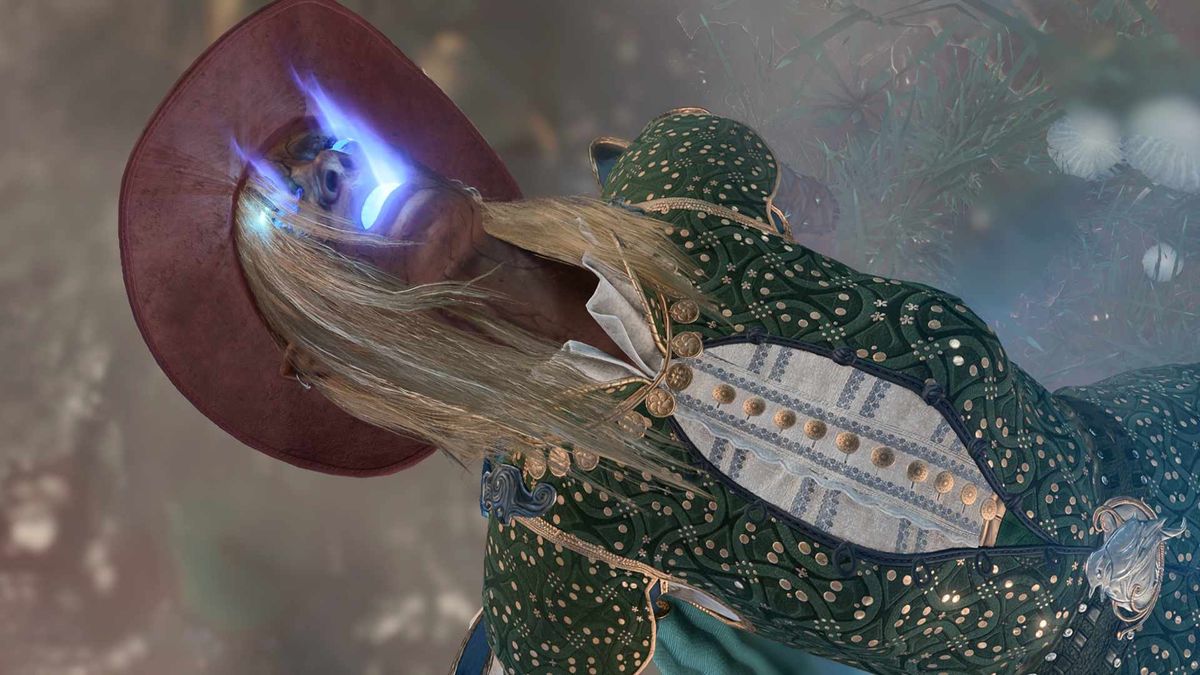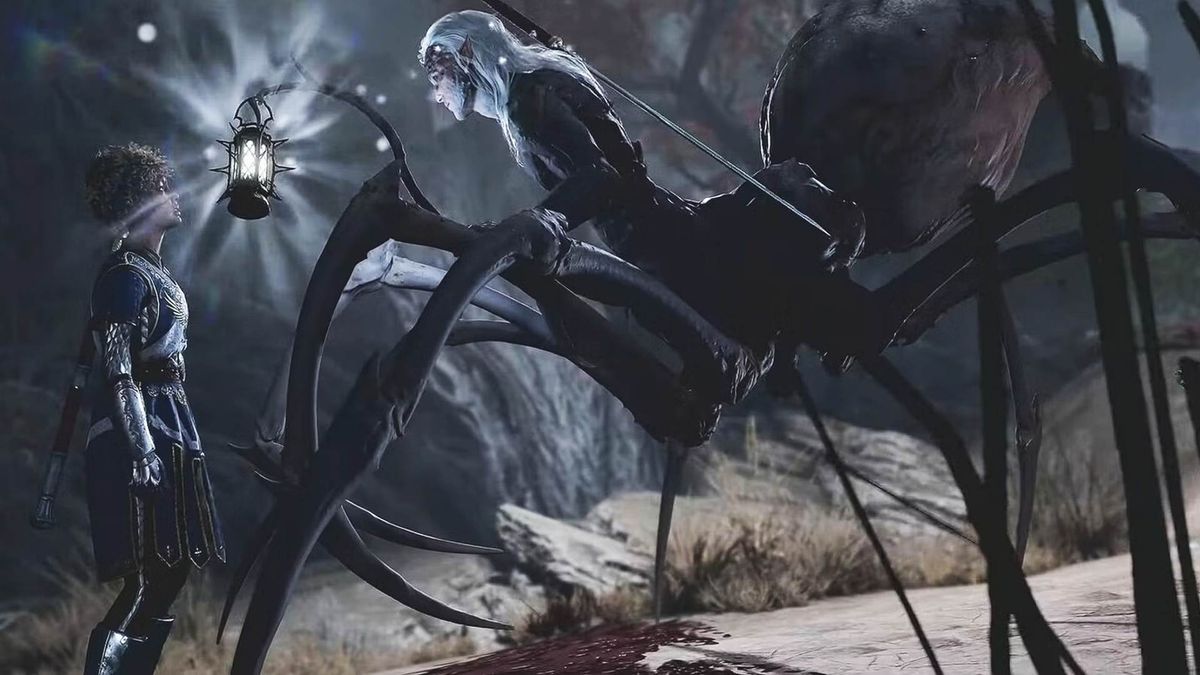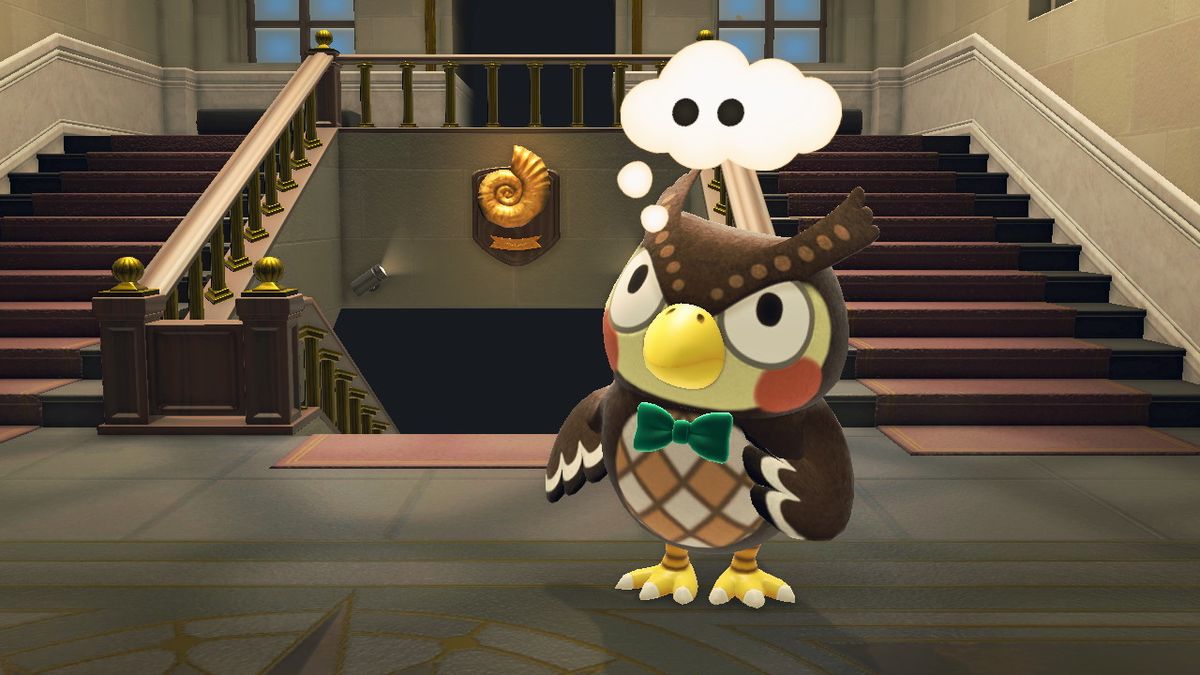Tension had been steadily building between Ukraine and Russia for weeks. The world watched as 190,000 Russian troops amassed along Ukraine’s borders (opens in new tab), and as the separatist-occupied cities of Donetsk and Luhansk were evacuated. As NATO member states encouraged (opens in new tab) Russia’s President Vladimir Putin to deescalate the threat of war. As President of Ukraine Volodymyr Zelenskyy urged citizens to remain calm (opens in new tab) in the face of so much uncertainty. And then the world watched once again as the invasion began. Throughout all of this, developers stationed in Ukraine have been trying to do what they do best: create world-class video games.
“We’re doing our best to go about our lives as best as possible in general,” says Wael Amr, CEO of Frogwares, the developer of Sherlock Holmes: Chapter One and The Sinking City. “All our lives are in a bit of a limbo state right now. We want to continue as normal and are doing so, but you can’t ignore what is happening fully either… In the end, we are just game developers. That’s what we are good at and what we want the freedom to do.”
That’s a sentiment shared by dozens of development teams that GamesRadar+ has spoken to in recent weeks, as we sought to get a clearer picture of the situation on the ground, and the way it is impacting the community of developers in Ukraine. Oleg Yavorsky, business development director at Vostok Games, the studio behind Survarium and Fear the Wolves, put a fine point on it when we spoke on Tuesday: “We keep our fingers crossed for the peace to be finally settled soon – let the wars happen in video games only!”
Some developers have been granted anonymity due to the sensitive nature of events.
“We’re just trying to remain calm”

In the last 72 hours, the situation in Ukraine has changed dramatically. Ukrainian and U.S. officials confirmed that a series of missile strikes have targeted key military installations. Russian forces have begun surging into the country from Crimea in the south, which Russia annexed in 2014; from the east, towards Ukraine’s second-largest city of Kharkiv; and from Belarus to the north, leading to Russian forces seizing control (opens in new tab) over Chernobyl and its surrounding exclusion zone. As of February 24, President Zelenskyy has (opens in new tab) severed diplomatic ties with Russia, mobilized ground forces, and declared martial law – urging Ukrainians to stay at home. As one developer told us overnight: “We’re just trying to remain calm right now.”
Through our reporting, GamesRadar+ has learned that many Ukrainian studios have been exploring large-scale relocation opportunities since the beginning of February, and that efforts are quickening as the conflict continues to escalate and spread further west into technology hubs like the capital of Kyiv and the city of Lviv. Other developers have expressed a desire to stay put, to continue living and working under the shadow of war. “We have felt Russian aggression for eight years,” one developer told us, “sometimes work is the best distraction.” Another explained that they could either “sit down at a desk or drive to the border and fight…”
Obviously, it will be pretty hard to do anything when your workspace is destroyed”
Some Ukrainian game developers have no choice but to stay put. Game designer Ilona Shvets spoke with us from Kharkiv on Friday, February 25, explaining that “enormous traffic jams” appeared as early as 8 am as people attempted to flee the city – a response, she believes, to explosions heard on the outskirts. While Shvets had a plan to leave the country, she didn’t have time. “We had to get back to the city. We barricaded ourselves and taped up the windows; every time Russian jets were shelling we were just hiding behind the barricades.”
Sengi Games, whose studio is located close to the border of Belarus, tells us that production on The Serpent Rogue – an upcoming action-adventure game set to be published by Team 17 – has been temporarily halted. “All Sengi Games employees were notified that we will not be working until everyone is safe,” says ‘Alex’, who is able to speak on behalf of the studio. “Obviously, it will be pretty hard to do anything when your workspace is destroyed.”
“After all, our people are our greatest asset”

Elsewhere in the world, a representative from Florida-based publisher Saber Interactive tells GamesRadar+ that it is monitoring the situation in Ukraine closely and that it has offered staff – which include Metro developer 4A Games, among others – “the option to relocate” to other locations where Saber has a presence. The rep adds: “We are prepared to support our employees however we can and remain fully committed to the physical and emotional well-being of all of our teammates, and are in touch daily with studio leadership as the situation develops.”
Back in Ukraine, support takes different forms across the network of homegrown studios we have spoken to in the days and weeks leading up to the invasion. Yavorsky tells us that Vostok has been exploring its options to “best ensure the safety of our people,” which includes new training and a possible team relocation. “I think the most important thing for developers is to realize they are not alone. Should the situation [get worse], Vostok will do its best to ensure they and their families are safe. For those who want it, we have organized first-aid medical training so they can get practical skills for when in an extreme situation. Training like that can help some feel more confident and less stressed.”
Vladimir Loban, general director at Volmi Games (a Virtuos Studio) says that “we have business continuity plans for a variety of scenarios – from power outages in the office to more severe external events,” and his leadership team remains focused on supporting impacted staff. “We need to be open and caring for those in need. After all, our people are our greatest asset.”

All we can do is let each member of our team know they are free to plan and act according to what gives them the most peace of mind”
‘Alex’ from Sengi gives an example of just one way Ukrainian studios are moving to support their people in the immediate aftermath of the invasion on Thursday, February 24. “Our morning started with a message warning of rocket attacks, and I assure you, there are lots of better things to wake up from. The first thing we did was wake everyone else up from the team with a call and gave them instructions on what to do, ask where they will go, and how we can help each other. The second was to give monthly payments early on before the banks collapse. Finally, we protected hard drives with some sources of the project so we could continue to develop and polish [The Serpent Rogue] after this ends.”
Alexey Menshikov, CEO at StarDrone VR developer Beatshapers, spoke with us just hours before the first missiles were launched into Ukraine, explaining that he has asked his staff to “move for a couple of weeks” to either western Ukraine or to another country entirely. “It’s not because we have to – we are talking with other studios, and everyone keeps working – but this is my risk mitigation. Our current partners in Germany offered us help and office space, but I hope we wouldn’t have to use this proposal.”
Frogworks is making similar considerations behind the scenes, as it works to accommodate and support its developers. “All we can do as a company is let each member of our team know they are free to plan and act according to what gives them the most peace of mind right now, and that we support them,” says Amr. GamesRadar+ has independently verified that while work has all but stopped at Frogworks as of February 25, some employees are coming online to support other colleagues or otherwise keep themselves distracted. “Each person’s situation and wishes are different, so we can’t try to dictate to our team what they should do,” Amr continues. “If the situation changes we will all adapt, as we have done in the past – because what else can you do in a situation like this?”

Ubisoft statement
“We have been monitoring the situation closely and implemented several measures to help keep our teams in Ukraine safe. We have also provided assistance and aid to all team members. In order to respect our team’s safety and privacy, we won’t be providing additional details at this time.”
“You can’t take the Ukraine out of the Ukrainian”

There’s a palpable sense of exhaustion in that statement from Amr. We were curious as to why so few of Ukraine’s game developers made the decision to leave the country in recent weeks, even as tension and rhetoric from all sides were beginning to mount up. One studio we spoke to in early February noted that the “gauntlet of misinformation coming from multiple sources on all fronts of this stand-off” made it difficult to create concrete plans, while another I spoke to on Tuesday explained that there was “no panic whatsoever” on the streets of Kyiv – despite the looming threat. Fast forward 48 hours and there are hour-long queues for food and gasoline, with reports indicating that the Ukrainian Ministry of Defence has begun urging residents to make homemade petrol bombs to defend the city of Kyiv.
It must be understood that the citizens of Ukraine have had this conflict hanging over their heads since 2014. The looming threat from Russia has become a backdrop to everyday life, following the Maiden Revolution which resulted in the death of 100 Ukrainians, the subsequent ousting of Ukraine’s pro-Russian president Viktor Yanukovych, and the annexation of the province of Crimea in the aftermath. “It is tough not to think about the situation outside, but we’ve gotten used to it over the years, unfortunately,” says Yavorsky. “We shouldn’t forget that Ukraine has been in this state of aggression from Russia since 2014, and over 14,000 people have been killed since. Unfortunately, we already got used to living in this state of danger.”
This ‘state of danger’ has escalated in recent days. I spoke with one former 4A Games developer, barely audible over the sound of the air raid sirens ringing throughout the streets of Kyiv, who told GamesRadar+ they were going to take shelter with their family in one of Ukraine’s underground Metro stations – a twisted example of art reflecting reality. One programmer told us that they are stuck in a miles-long traffic jam trying to leave the capital. Few Ukrainians expected it would actually get this far. “We’ve been under these threats since 2014, so eventually one’s mind tends to adapt and accept it so as not to become consumed by constant fear,” says Amr. “So in essence our hearts and minds have become quite numb to it all.”

Some people just don’t wanna leave – they have families here, it’s their home”
For developers who are hoping to leave Ukraine now, it might be easier said than done. Ukraine’s airspace has been closed following the Russian invasion – with some commercial airlines suspending flights as soon as tensions began to escalate. However, Shvets tells us that developers are aware of routes out of the country, contingencies born out of the conflict that’s been ongoing since 2014. “For game and IT companies, it’s the usual drill since 2014: if shit hits the fan, immediately move your staff to the western border, closer to Poland. But some people just don’t wanna leave – they have families here, it’s their home. So a lot of people stay put, barricading their flats (which can at least save you from the shockwaves) and just praying for no stray rockets to target their walls or windows.”
For those developers who are concerned about uprooting their lives and leaving Ukraine, I’m reminded of a conversation I had with 4A Games’ CEO Dean Sharpe before the release of Metro Exodus. Sharpe helped lead a contingent out of Ukraine in 2014, chartering a plane so that 80+ Metro developers and their families could reach the new headquarters in Malta safely, along with all of their equipment and personal belongings. “The old saying,” he told me in 2018, “is that you can take the Ukrainian out of Ukraine, but you can’t take the Ukraine out of the Ukrainian.”
“Thank you for taking an interest in our situation”

While none of the studios I have spoken to were willing or able to suggest that delays to announced projects will occur, it does appear that some studios are putting development on hold as they try to account for their people and take stock of the situation. For those who are turning to work as a needed distraction, many are now able to do so from their homes. While the largest Ukrainian studios are housed within large structures – old industrial spaces, retrofitted schools, and converted Soviet research facilities – pandemic preparedness has inadvertently given Ukrainian developers the ability to work outside the office.
As Loban from Volmi Games told us in early February: “Since the beginning of the pandemic, our studio has been operating in hybrid mode. Our team can work from home, or in the office, depending on their project needs and personal preferences. The main changes in processes occurred with the onset of the pandemic. We needed to transition to remote work mode very quickly as the first lockdown was tough and with a short notice period for businesses. From that moment on, effective communication became even more important and that has remained unchanged even till now.”
For those on our team who want to be next to the family during this standoff, they can”
Asked whether Frogworks had seen an uptick in requests to work from home in the build-up to the invasion, Amr tells us that “almost every one of our staff has been working from home since the start of the pandemic and throughout it, we left that option open to everyone, regardless of the various [COVID-19] waves that have come and gone. So we haven’t really seen a notable increase in people wanting to stay at home since we don’t track our staff on this.”
“The pipeline changes that the pandemic created are still in effect and essentially how we now work regardless,” he says, adding, “I guess the pandemic created this one silver lining in that we have all seen [that] work from home functions fine and so for those on our team who want to be next to the family during this standoff, they can.”
It’s difficult to think about video games at a time like this, when escalating conflict and violence threaten to put so many in danger. But the dozens of developers that GamesRadar+ has spoken to while reporting this story wanted to express their gratitude towards the communities of players and development partners around the globe for their ongoing support. Even amidst the looming threat of war, video games have the ability to bring people together. “To your readers,” one community manager told us, “thank you… thank you for taking an interest in our situation and for your support.”

Gameloft Statement
“Gameloft is committed to the well-being and safety of its employees around the world, and we have been following the political situation in Ukraine very closely. A conversation between HQ and our studios in Kharkiv and Lviv on that matter has been ongoing for the past few weeks to prepare for any potential outcome. We have already taken measures to ensure stable communications and support for our employees and to mitigate any potential disruption of work. We are updated on the situation and its evolution on a daily basis to reassess our support if needed.”
“We can’t even think about developing anything”

The situation in Ukraine is changing by the hour. As developers in Ukraine scramble to hold together their lives, developers from around the world are starting to rally. S.T.A.L.K.E.R. 2 developer GSC Game World, which is based in Kyiv, broke its silence to ask players to support the Armed Forces of Ukraine. 11 Bit Studios from Poland is donating all profits from This War of Mine over the next seven days to the Ukrainian Red Cross to support victims of war in Ukraine. Destiny 2: The Witch Queen developer Bungie is donating to humanitarian efforts as part of the studio’s Game2Give initiative. Cyberpunk 2077 developer CD Projekt RED is donating 1 million PLN ($250,000 dollars) to the PAH organization.
For now, the focus for many developers in Ukraine is to stay safe, protect their families, keep distracted from the chaos outside their windows, and to cling onto what little normalcy they have left. Or, as Alex from Sengi Games puts it: “There will be different reactions from different developers – it heavily depends on what region you are in, where your family is, and how well prepared you are. But until we are sure we did everything we could to protect our friends, family, and employees, we can’t – and shouldn’t – even think about developing anything.”
If you want to help the people of Ukraine, consider donating to The Ukrainian Red Cross (opens in new tab), which is providing vital aid on the ground; Doctors Without Borders (opens in new tab), which is working with local volunteers and healthcare professionals; and The Kyiv Independent (opens in new tab), a Ukraine-based English-language newspaper which is keeping the world informed on what’s happening on the ground.
 Games News games, movies and TV you love.
Games News games, movies and TV you love.



